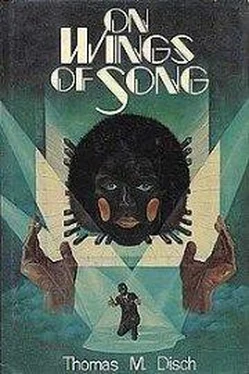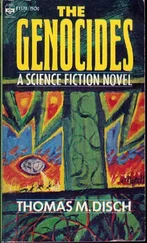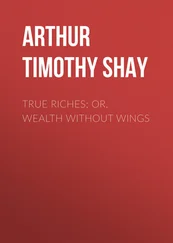It didn’t even take a night’s sleep with its standard nightmare to put Daniel into a fitter frame of mind. By lights-out he was already looking at the little horrors and afflictions of his prison in the perspective of practical sanity, the perspective by which one’s immediate surroundings, whatever they are, are seen simply as what is.
He had played a game of chess with his friend Bob Lundgren, not an especially good game but no worse than usual. Then he had wormed his way into a conversation between Barbara Steiner and some of the other older prisoners on the subject of politics. Their talk was in its own way as much over his head as Bob James’ chess, at least as far as his being able to contribute to it. They made hash of his most basic assumptions, but it was delicious hash, and Barbara Steiner, who was the clearest-headed and sharpest-tongued of the lot of them, seemed to know the effect she was having on Daniel and to enjoy leading him from one unspeakable heresy to the next. Daniel didn’t consider whether he actually agreed with any of this. He was just caught up in the excitement of being a spectator to it, the way he enjoyed watching a fight or listening to a story. It was a sport and he was its fan.
But it was the music that had the largest (if least understandable) effect on him. Night after night there was music. Not music such as he’d ever conceived of before; not music that could be named, the way, when it was your turn to ask for your favorite song in Mrs. Boismortier’s class you could ask for “Santa Lucia” or “Old Black Joe” and the class would sing it and it would be there, recognizably the same, fixed always in that certain shape. Here there were tunes usually, yes, but they were always shifting round, disintegrating into mere raw rows of notes that still somehow managed to be music. The way they did it was beyond him, and at times the why of it as well. Especially, it seemed, when the three prisoners who were generally accounted the best musicians got together to play. Then, though he might be swept off his feet at the start, inevitably their music would move off somwhere he couldn’t follow. It was like being a three-year-old and trying to pay attention to grown-up talk. But there seemed to be this difference between the language of words. It didn’t seem possible, in the language of music, to lie.
Days later, after he’d dismissed the possibility of ever seeing it, the book Mrs. Boismortier had sent Daniel via his father arrived. It had got past the censor relatively intact, with only a few pages snipped out towards the end. The front cover showed an ingratiating Jesus crowned with thorns, holding out a hamburger. Drops of blood from Jesus and drops of catsup from the burger mingled in a crimson pool from which the words of the title rose up like little lime-green islands: THE PRODUCT IS GOD by Jack Van Dyke. It came with testimonials from a number of unfamiliar show business celebrities and from the Wall Street Journal, which called Reverend Van Dyke “the sinister minister” and declared his theology to be “the newest wrinkle in eternal truth. A real bombshell.” He was the head of Marble Collegiate Church in New York City.
Though it was about religion, an area Daniel had never supposed he could take an interest in, he was glad to get it. In the congested dorms of Spirit Lake, a book, any book, was a refuge, the nearest possible approach to privacy. Besides, Mrs. Boismortier’s earlier batting average had been pretty good, so maybe The Product Is God would be truly interesting. The cover was lurid enough. Anyhow what was the competition? A couple of scruffy bibles and a stack of unread (because unreadable) undergod tracts about iniquity, repentance, and how suffering was a matter for rejoicing once you found Christ. Only prisoners with desperately long terms, fifteen or twenty years, ever pretended to take any of that seriously. There was theoretically a better chance to get paroled if you could convince the authorities you were of his existence or nonexistence, as the case might hope was part of the punishment.
It was clear right from page one that Van Dyke was no undergoder, though just what he was Daniel couldn’t quite tell. An atheist it almost seemed, from some of the things he said. Like this, from the “Prefatory Postscript,” before he even got warmed up: “Often it has been objected, by this book’s admirers and its detractors alike, that I speak of Almighty God as though He were no more than some exceptionally clever Idea I’d got hold of, like a new theorem in geometry, or a scenario for an original ballet. In large part I must allow that this is so, but it doesn’t bother me, and I’m sure it doesn’t bother God. However He may concern Himself with human fate, He is surely indifferent to human controversy.” Or this, from the same Postscript: “The Most High is perfectly willing to be understood as an illusion since our doubts only make our trust in Him that much more savory on His tongue. He is, we must remember, the King of Kings, and shares the general kinky taste of kings for displays of their subjects’ abasement. Doubt Him, by all means, say I, when I speak to doubters, but don’t on that account neglect to worship Him.”
This was religion? It seemed almost the opposite, a burlesque, but Mrs. Boismortier (a good Episcopalian) had sent the book to him, and someone in the hierarchy of the prison, possibly even Warden Shiel, has passed it on, and millions of people, according to the cover, were able to take Reverend Van Dyke seriously.
Seriousness aside, Daniel was enthralled by the book. After a long dusty day of detasseling corn he would return to its paradoxes and mental loop-the-loops with a feeling of immersing himself in seltzer water. Just a few paragraphs and his mind was all tingly and able to think again, at which point he would return the book to its home in his mattress of huskings and straw.
Chapter One was an explanation, more or less, of the book’s garish cover, and of its title too. It was about a bunch of people who start a chain of fast-food restaurants, called Super-King. The chain is run not for profit but to give everybody something really good — Super-King Hamburgers and Super-King Cola, which, according to the chain’s big ad campaign, are supposed to make you live forever and always be happy, if you eat enough of them. No one is actually expected to believe the ads, but the chain is an enormous success anyhow. There were graphs and sales figures to illustrate its growth across the whole country and around the world. Of course the actual product the Super-King people were selling wasn’t hamburgers and such, it was an idea — the idea of Jesus, the Super-King. All products, Van Dyke insisted, were only ideas, and the most mind-boggling idea was the idea of Jesus, who was both God and an ordinary man and therefore a complete impossibility. Therefore , since He represented the best possible bargain, everybody should buy that product, which was basically what had happened over the last two thousand years — the rise of Christianity being the same as the success of the Super-King chain.
Chapter Two was about the difficulty of believing in things — not just in religion, but in advertising, in sex, in your own daily life. Van Dyke argued that even when we know that companies aren’t telling the complete truth about their products, we should buy them anyhow (as long as they aren’t actually harmful) because the country and the economy would collapse if we didn’t. “By the same token,” Van Dyke wrote, “lies about God, such as we find in Holy Scripture, help us keep our psychic economy running. If we can believe, for instance, that the world was all knocked together in six days rather than in however many billions of years, we’ve come a long way toward self-mastery.” The rest of the chapter was a kind of advertisement for God and all the things He would do for you once you “bought” him, such as keeping you from ever being depressed or bitter or coming down with colds.
Читать дальше












